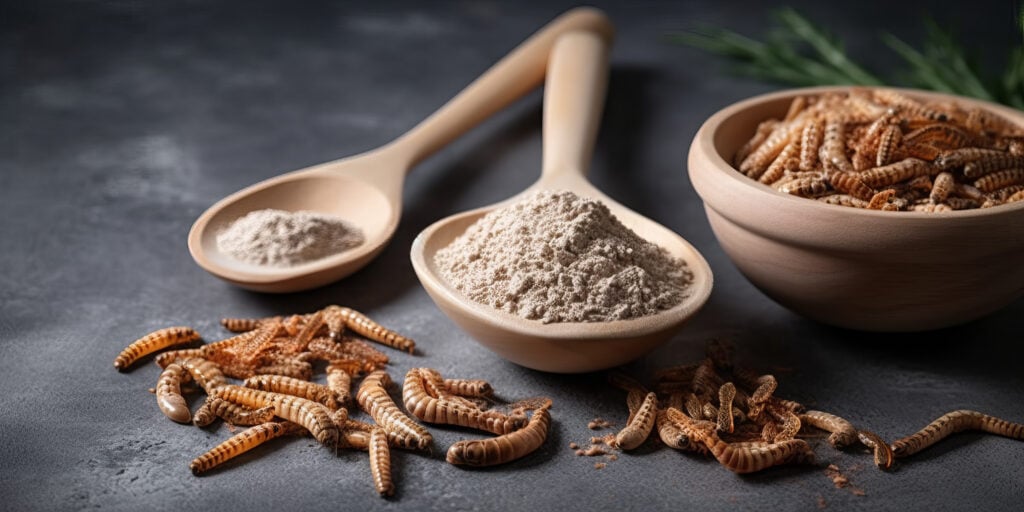Lidl Ireland has launched burgers made with soy and insects as part of its My Street Food range.
The burgers cost €2.99 for a pack of two. As well as textured soya flour, they contain “dried mealworm larvae.” They are simply labeled as “Insect Burgers” in store. It is not known if the product is a permanent fixture to the menu, or if it is available in other countries. Plant Based News has reached out to Lidl Ireland for clarification. Lidl UK confirmed that it has no plans to stock the burgers.
In 2020, the EU approved three “edible” insects for human consumption – including locusts and crickets, as well as mealworms. Earlier this year, a further two insects were approved, and there are said to be eight more awaiting approval. According to the United Nations, the global edible insect market could be worth $6.3 billion (£4.6 billion) by 2030. It’s thought that two billion people around the world already eat them.
Eating insects is still highly unusual in Europe, and these burgers are likely among the first of their kind to be sold in a mainstream supermarket. While the edible insect market is growing, only 10.3 percent of Europeans stated that they would be willing to replace meat with insects.
Are there really ‘benefits’ of eating insects?
Advocates for insects argue that they are a more environmentally sound protein choice than conventional meat products.
Christophe Derrien, the secretary general of the industry organisation International Platform of Insects for Food and Feed, previously told the Guardian: “We believe that insects for food is one solution for some of the biggest challenges we are facing on the planet. In the context of scarce resources, and insect production is not too demanding, you have the capacity to produce high-quality protein. That is a very promising solution.”

While it’s true that insects are undoubtedly a more sustainable food choice than mammals, birds, fish, and other animals more commonly eaten in Europe, there are still ethical costs associated with eating them.
Can insects feel pain?
At least a trillion insects are killed each year for human consumption, and slaughter methods include starving the insects before subjecting them to extreme hot or cold. Contrary to popular opinion, there is a growing body of evidence that insects are sentient and able to feel emotions like pain.
A 2022 Queen Mary University of London study on the subject of insect pain found evidence that “at least some” were able to feel it. Study authors highlighted that other insects haven’t been studied in enough detail yet.






